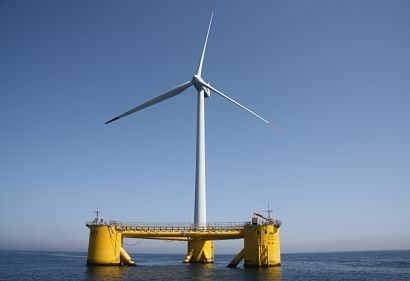
DNV is providing technical advisory and project management support for the deployment and monitoring of seven Floating Lidar System (FLS) devices for KREDO Offshore, a Korean renewable energy developer. An FLS takes wind measurements from a vertical light detection and ranging device and also collects a range of measurements including met ocean parameters. It has become one of the most common measurement technologies of choice for offshore wind projects due to its cost effective and time-saving benefits.
DNV’s work scope also includes reviewing the supplier track record and contracts, FLS design and analysing the data measured by the devices. DNV is carrying out regular data checks for the wind measurements, using these and technical data on the wind turbines to predict the wind farm’s net annual energy production. In addition, DNV is offering recommendations to minimise the operational risks for KREDO Offshore to ensure the highest possible quality of the measured dataset.
These measurements and the findings from the FLS will contribute to establishing KREDO Offshore’s business case for their multi-billion dollar wind project. Increasing renewable energy penetration in the energy mix will support the aims of the country’s Green New Deal.
“While offshore wind projects offer higher and more reliable wind speeds, ever challenging commercial conditions require considerable confidence in the accuracy of the site wind data assessment to fine tune the design to the specific site conditions to minimise costs and risks” said Mike Hallett, Director of Engineering, KREDO Offshore. “DNV’s extensive relevant experience in offshore wind gave us the assurance that we could trust the data generated from this project. The accuracy of this wind data assessment is critical in our decision-making process and gives us confidence on the viability of our projects.”
DNV’s deep domain knowledge and expertise in assisting clients at all stages of offshore wind project development and operations helped it win the contract.
“We are delighted to have secured this contract,” added Brice Le Gallo, Vice President and Regional Director APAC, Energy Systems at DNV. “Offshore wind is a key focus area for DNV in APAC and this latest work demonstrates our expertise and position as a trusted advisor in offshore wind and in measurements. We are also very proud to be able to contribute to South Korea’s ambitious climate targets by supporting the implementation of offshore wind.”
South Korea has set a goal of deriving 20 percent of its power from renewable sources by 2030, and wind energy is a rapidly growing industry, supported by the policy ambition to grow the wind share of the country’s energy mix from 1 percent in 2015 to 6 percent by 2030 and various measures – including tax incentives.
“Due to a number of complex nearshore constraints in the Korean peninsula, many offshore wind developers are looking into far offshore areas where the installation of conventional met-masts is less feasible” said Yoon Woo Sik, Senior Consultant and Project Manager, DNV Korea. “As the FLS technology has become mature and has been widely accepted by the industry, we have seen the significant increase in the demand for the use of FLS in offshore wind measurement campaigns in South Korea. We are committed to support one of our key customers, KREDO Offshore in their FLS project. Using an FLS can be an attractive option for investors as it delivers important data critical in the design of offshore wind farms.”
For additional information:

